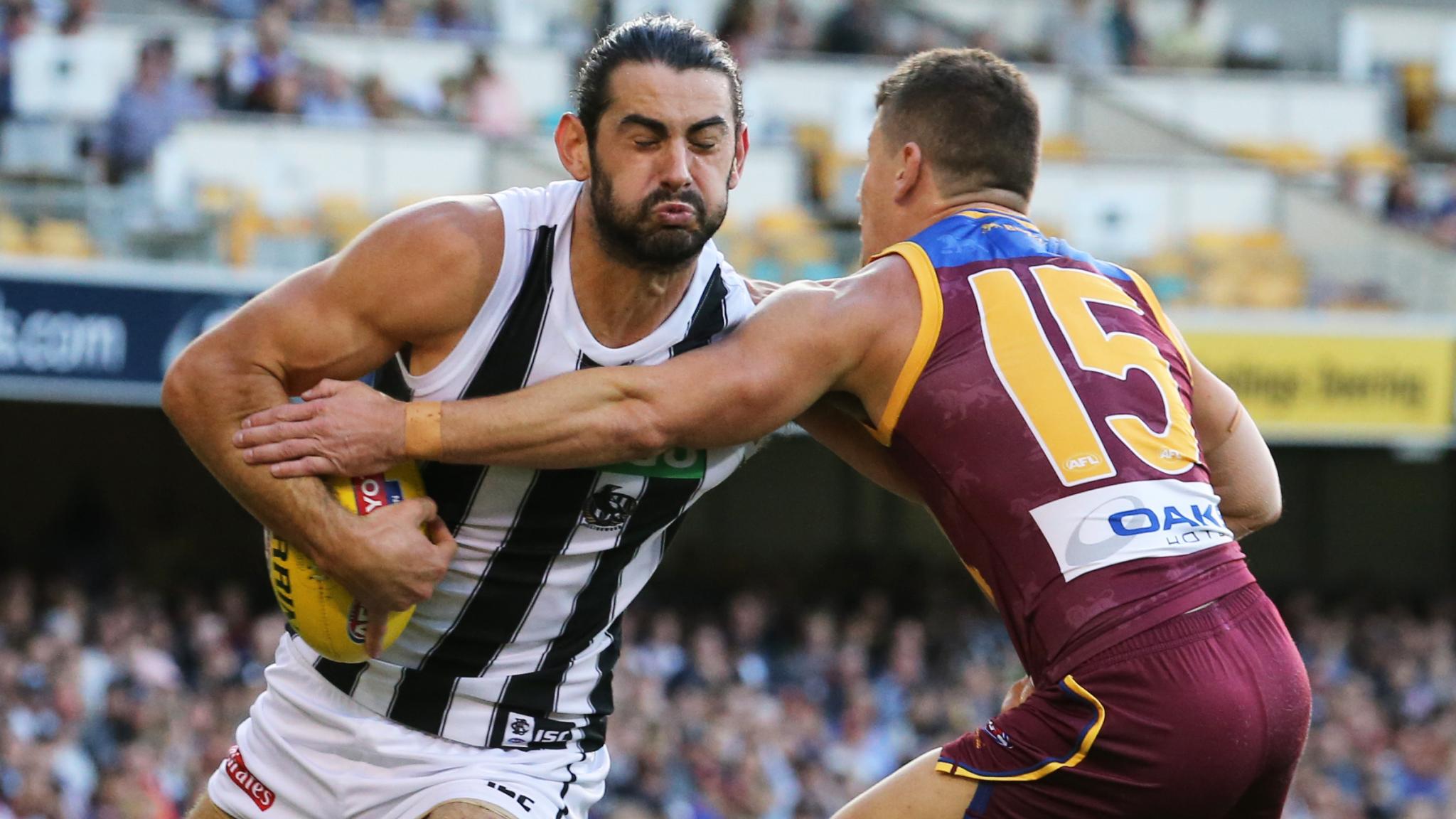WEST Coast forwards Josh Kennedy and Jack Darling kicked six goals between them as the Eagles' high-powered forward line took Collingwood's defence apart in round 17.
The Magpies, without key forward Mason Cox, also allowed Jeremy McGovern, Brad Sheppard and Shannon Hurn to take 35 marks between them, with McGovern's intercept ability coming to the fore.
Cox's late withdrawal was significant for Collingwood, which relies on his hulking presence and ability to create a contest up forward.
Brody Mihocek, who has become a key figure in Collingwood's side, was charged with trying to keep McGovern in check but was well and truly beaten on that afternoon.
Curbing McGovern's influence will be a major priority for Nathan Buckley and his forward line, while the Magpies' midfielders have a role to play in keeping the footy away from the Eagles star.
This is how AFL.com.au sees the match-up playing out at Optus Stadium in the battle of the birds on Saturday night.
West Coast
How they play: In rounds 18-23, after Nic Naitanui went down with a season-ending knee injury, West Coast was ranked No.15 in the competition for points from centre bounces. Between rounds one and 17, the Eagles were third in the AFL. They generally prefer to control the ball and build their attacks from the back half of the ground. Tagger Mark Hutchings plays a key role in trying to shut down the opposition's most dangerous midfielder, and you can expect him to go to Steele Sidebottom.
Attack: When up and going, the Eagles forward line is among the most damaging in the competition. When healthy, Josh Kennedy's influence is crucial, with the Eagles scoring 62 per cent of the time when the ball is in his hands, and ranked second in the AFL. Jack Darling, Mark LeCras, Liam Ryan, Willie Rioli and Jamie Cripps all kicked more than 20 goals for the season.
Defence: The AFL's No.1 intercept player, Jeremy McGovern, leads the way in winning the ball back from the opposition, but Tom Barrass, Brad Sheppard and even Elliot Yeo are all adept in this area. The defence tends to fold back more than other teams, with the Eagles daring the opposition to kick to contests, which allows them to capitalise and win back the footy. This is where they start their counter-attack.
Ball movement: Not dissimilar to Hawthorn, the Eagles have a fairly simple style, with ball control the key. They like to make the ground wide and pull the opposition's team defence apart that way. Once they get in attacking positions, they try to centre the ball and create isolation opportunities for their forwards. Moving the footy with precision is an area of their game that has been vastly improved since last season.
How to beat them: West Coast does not rely on its pressure around the footy like Richmond, for instance, and prefers instead to sweat on the opposition hack-kicking the ball forward, where their defenders can intercept and sweep the ball away. Lowering your eyes going inside 50 and using hit-up options to take McGovern et al out of the game is vital. Without elite runner and All Australian wingman Andrew Gaff in the team, the Eagles have struggled to score from defensive 50 chains like they did earlier in the season – going from third in the AFL from rounds one to 20, to 13th from rounds 21 and 23. Stopping Kennedy and Darling is a must.
Collingwood
How they play: The Magpies rely heavily on their midfield, led by Brodie Grundy, Scott Pendlebury and Steele Sidebottom, to gain control of the game. All Australian Grundy's ability to play as an extra midfielder is vital for their run-and-spread game, with the Magpies ranked as the best clearance differential side in the AFL. Taylor Adams' strong late season form is also a key factor in why Collingwood is ranked as the second-best contested possession differential side in the AFL.
All Australian ruckman Brodie Grundy plays as an extra midfielder for the Magpies. Picture: AFL Photos
Attack: The Magpies have multiple goal scoring options, averaging eight goal kickers per game – ranked fourth in the AFL. Seven players (Will Hoskin-Elliott, Jordan De Goey, Josh Thomas, Jaidyn Stephenson, Brodie Mihocek, Mason Cox and Tom Phillips) kicked 15 or more goals across the season, which is the second most in the competition. Cox and Mihocek are critical to the Magpies keeping their structure ahead of the ball, while the side attempts to isolate De Goey deep in the forward line whenever it can and doesn't mind kicking the ball to grass and letting its forwards run onto the ball.
Defence: Injury and unavailability have meant this is the most under pressure area of the ground for the Pies, but they have held up remarkably well. Tom Langdon plays as an undersized key defender but backs his ability to read the footy in the air and is elite at intercepting the footy. Jeremy Howe's return will give the Magpies more aerial support. Adam Oxley, Jack Madgen and Nathan Murphy were given opportunities late in the year after Darcy Moore went down with a hamstring injury.
Ball movement: Collingwood is quite direct with its ball movement and the team relies on its speedy forwards to keep the ball trapped inside 50. Their players are quicker across the ground this year, with Stephenson, Thomas and Hoskin-Elliott all dangerous in space, and crucial to how they apply pressure inside 50. They rely on their centre-bounce work to establish field position.
How to beat them: Their defence is still a makeshift unit and can be shaky when forced to defend in one-on-one situations. Teams with tall forwards, such as West Coast, have the potential to expose the Magpies' lack of experience in defence.



